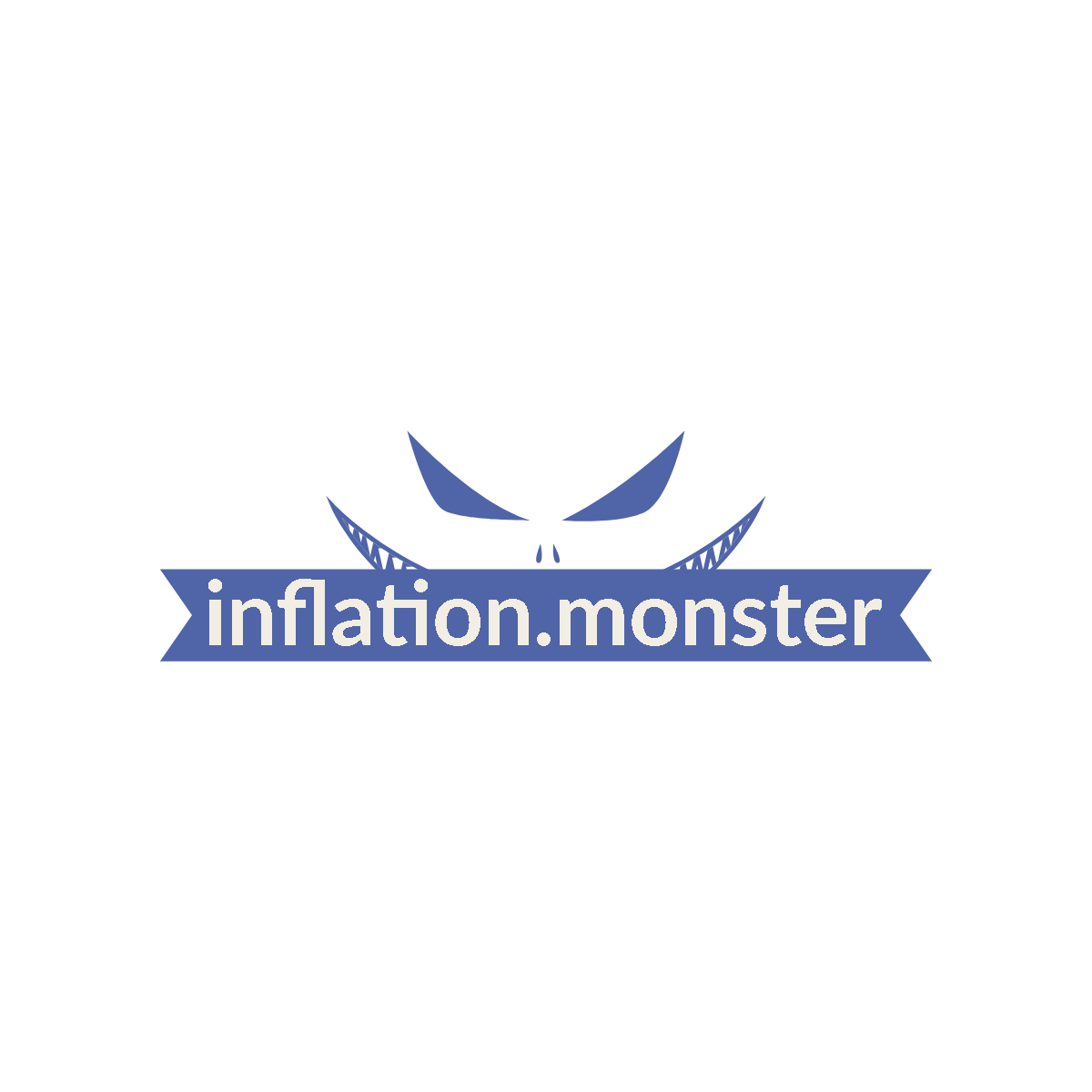When it comes to the world of money and economics, one topic that often causes confusion and concern is inflation. It’s a word that gets thrown around a lot, but what exactly does it mean and how does it affect us? Well, here at Inflation.Monster, we’re here to break it down for you. Today, we’re taking a closer look at inflation and its implications for healthcare insurance. We’ll explore how rising prices impact the cost of coverage, and why understanding these economic factors is crucial for navigating the ever-changing landscape of healthcare. So buckle up and get ready to dive into the world of inflation and the economics of healthcare insurance.

Understanding Inflation
Inflation is a phenomenon that refers to the general increase in prices of goods and services over time. It erodes the purchasing power of money and affects the overall economy. Understanding the causes and types of inflation is crucial to comprehend its impact on healthcare insurance.
Definition of inflation
Inflation is commonly defined as the sustained increase in the average price level of goods and services in an economy over a period of time. It is measured by various indexes such as the Consumer Price Index (CPI) or the Producer Price Index (PPI). The inflation rate is the percentage change in these indexes over a specific period.
Causes of inflation
Inflation can be caused by various factors, including demand-pull and cost-push factors. Demand-pull inflation occurs when aggregate demand exceeds the supply of goods and services, creating upward pressure on prices. On the other hand, cost-push inflation occurs when production costs increase, leading to higher prices to maintain profit margins.
Types of inflation
There are different types of inflation, including mild inflation, moderate inflation, and hyperinflation. Mild inflation refers to a low and steady increase in prices, usually within a range of 1-3% annually. Moderate inflation is characterized by a higher rate of price increase, typically ranging from 3-10% annually. Hyperinflation is an extreme form of inflation where prices escalate rapidly, often exceeding 50% per month.
Impact of Inflation on Healthcare Insurance
Inflation has a significant impact on the cost of healthcare and, consequently, healthcare insurance. The rising costs of healthcare services directly affect insurance premiums and make healthcare insurance less affordable for individuals and businesses.
Rising healthcare costs
Healthcare costs have been rising steadily over the years due to factors such as advancements in medical technology, increased demand for healthcare services, and the rising costs of pharmaceuticals. These increasing costs are a significant driver of inflation in the healthcare sector.
Effects on insurance premiums
As healthcare costs rise, insurance companies must adjust their premiums to cover the higher expenses. This results in increased insurance premiums for policyholders, making healthcare insurance less affordable for individuals and businesses. The impact is particularly significant for those with pre-existing medical conditions or individuals living in regions with higher healthcare costs.
Decreased affordability of healthcare insurance
The combination of rising healthcare costs and higher insurance premiums has led to decreased affordability of healthcare insurance for many individuals and businesses. This has resulted in uninsured or underinsured populations, leaving them vulnerable to financial hardships in the event of a medical emergency or the need for ongoing healthcare services.
Inflation and Healthcare Insurance Providers
Inflation affects not only individuals but also healthcare insurance providers. It influences their profit margins and necessitates strategic responses to ensure sustainment in a changing economic landscape.
Profit margins and inflation
Inflation can erode the profit margins of healthcare insurance providers. As healthcare costs rise, insurance companies need to allocate more funds to cover claims, which can strain their financial resources. Additionally, if insurance premiums cannot rise at the same pace as healthcare costs, it can further impact profit margins.
Insurance companies’ response to inflation
Insurance companies respond to inflation by adjusting their pricing models, coverage options, and risk management strategies. They may increase insurance premiums, modify policy terms, or offer new types of insurance products to address the changing dynamics of healthcare inflation. Effective response to inflation is crucial for insurance companies to remain viable in the market.
Role of government regulations
Government regulations play a vital role in managing inflation within the healthcare insurance industry. Regulations such as rate reviews, price controls, and mandated coverage requirements can impact insurance providers’ ability to respond to inflation. Balancing the need for consumer protection with the sustainability of the insurance industry is a delicate task for policymakers.
Inflation and Healthcare Service Providers
Inflation has a direct impact on healthcare service providers, including hospitals, clinics, and healthcare professionals. Rising costs can strain their resources and pose challenges for delivering quality healthcare services.
Increased costs for hospitals and clinics
Healthcare service providers face increased costs due to inflation. Higher prices for medical equipment, medications, and utilities directly impact their operating expenses. Additionally, inflation can lead to increased salaries and wages for healthcare professionals, further adding to the cost burden for hospitals and clinics.
Impact on healthcare professionals
Inflation affects healthcare professionals through various channels. Rising costs can result in lower real wages for professionals, reducing their purchasing power. This can impact the recruitment and retention of skilled healthcare professionals, potentially leading to a shortage of qualified staff in certain regions or specialties.
Challenges for healthcare facilities
Inflation poses challenges for healthcare facilities in terms of financial viability and resource allocation. The increasing cost of healthcare services means that facilities need to generate higher revenues to cover expenses. This can result in higher fees or charges for patients, potentially limiting access to quality healthcare services for those with limited financial resources.

Inflation and Insurance Coverage
Inflation impacts insurance coverage by introducing limitations and implications for policyholders. Understanding these dynamics can help individuals and businesses make informed decisions about their healthcare coverage.
Coverage limitations
Inflation can lead to coverage limitations in healthcare insurance policies. As healthcare costs rise, insurance providers may adjust their coverage options or exclude certain treatments or services to mitigate financial risks. Policyholders may face limitations on the types of medical procedures covered or higher out-of-pocket expenses, limiting their access to necessary healthcare services.
Impact on policyholders
Policyholders experience the direct impact of healthcare inflation through changes in their insurance coverage. Higher insurance premiums, reduced coverage, or increased out-of-pocket expenses can strain individual budgets and limit access to healthcare services. This can lead to delayed or forgone medical treatments, potentially affecting the overall health outcomes of individuals and communities.
Alternatives for managing coverage
To manage the impact of inflation on insurance coverage, individuals and businesses can explore alternative approaches. This includes evaluating different insurance options, such as high-deductible plans or health savings accounts, to mitigate the financial burden of rising healthcare costs. Additionally, negotiating with insurance providers or exploring alternative healthcare delivery models, such as telemedicine or community-based clinics, can help individuals and businesses manage their healthcare coverage effectively.
Inflation and Healthcare Access
Inflation impacts healthcare access by exacerbating existing healthcare disparities and creating challenges for vulnerable populations. Addressing these issues is crucial for ensuring equitable access to quality healthcare services.
Inflation and access to quality care
Inflation can impede access to quality healthcare services, particularly for individuals with limited financial resources. The rising costs of healthcare can deter individuals from seeking timely medical attention or necessary preventive care, leading to poorer health outcomes. This can exacerbate existing disparities in healthcare access, resulting in unequal distribution of resources and services.
Healthcare disparities due to inflation
Inflation can widen existing healthcare disparities among different demographic groups. Vulnerable populations, such as low-income individuals, racial and ethnic minorities, or rural communities, are more likely to bear the burden of healthcare inflation. This can further perpetuate health inequities and limit access to essential medical treatments, diagnostics, or preventive care.
Implications for vulnerable populations
Vulnerable populations face the greatest challenges in accessing healthcare services due to inflation. Limited financial resources and higher healthcare costs make it difficult for these individuals to afford insurance coverage or pay for out-of-pocket expenses. This can result in delayed or forgone medical treatments and increased reliance on emergency services, further straining healthcare systems.

Managing Inflation in Healthcare Insurance
Managing inflation in healthcare insurance requires proactive measures and strategies to mitigate its impact on individuals, businesses, and insurance providers. Several approaches can be adopted to address this complex issue.
Inflation-indexed insurance policies
One approach to managing inflation in healthcare insurance is the implementation of inflation-indexed insurance policies. These policies adjust coverage and premiums based on a specific inflation index, ensuring that insurance benefits keep pace with rising healthcare costs. This helps to provide a level of predictability and affordability for policyholders.
Risk pooling strategies
Insurance providers can employ risk pooling strategies to manage inflation. By spreading the risk of high healthcare costs across a larger pool of insured individuals, insurance companies can mitigate the impact of inflation on premiums. This allows for more stable and affordable insurance options, particularly for individuals with higher healthcare needs.
Negotiating with healthcare providers
Insurance companies can negotiate with healthcare providers to manage inflation and contain costs. By leveraging their market power and forming strategic partnerships with healthcare facilities, insurance providers can negotiate favorable reimbursement rates and pricing structures. This can help to control rising healthcare costs and ensure more sustainable insurance premiums for policyholders.
Government Policies and Inflation
Government policies play a significant role in managing inflation within the healthcare insurance industry. Through regulations, interventions, and incentives, policymakers can influence the dynamics of healthcare inflation and mitigate its impact on individuals and businesses.
Government intervention in healthcare inflation
Government intervention can take various forms to address healthcare inflation. This includes price controls on pharmaceuticals or medical services, establishing rate review mechanisms for insurance premiums, or providing subsidies to individuals or businesses to make healthcare insurance more affordable. These interventions aim to strike a balance between ensuring access to healthcare services and maintaining the financial sustainability of the insurance industry.
Impact of healthcare regulations
Healthcare regulations can have a substantial impact on inflation within the industry. Regulations related to licensing, certification, or quality standards can influence the cost of healthcare services and, consequently, healthcare inflation. Additionally, regulations that promote transparency of prices or encourage competition among healthcare providers can help to mitigate the effects of inflation on insurance premiums.
Strategies for addressing inflation in policy
Policymakers can adopt various strategies to address inflation in healthcare policy. This includes promoting value-based care models that focus on improving health outcomes while reducing costs. By incentivizing preventive care, care coordination, and promoting cost-effective treatments, policymakers can help mitigate the impact of healthcare inflation on insurance premiums and healthcare access.
Future Trends: Inflation and Healthcare Insurance
As the healthcare landscape evolves, inflation and its impact on healthcare insurance will continue to be a prominent issue. Several future trends are expected to shape the dynamic relationship between inflation and healthcare insurance.
Projected inflation rates
Projected inflation rates indicate that the cost of healthcare is expected to continue rising in the coming years. As medical technology advances, new treatments become available, and demand for healthcare services increases, inflation is likely to remain a persistent challenge for the healthcare industry. Understanding and preparing for these projected inflation rates is essential for effective healthcare planning and insurance management.
Technological advancements and their impact
Technological advancements in healthcare can have a significant impact on the relationship between inflation and healthcare insurance. Innovations such as telemedicine, artificial intelligence, or precision medicine have the potential to improve healthcare efficiency and reduce costs. However, the adoption and integration of these technologies may require significant upfront investments, potentially contributing to inflation in the short term.
Reforms and policy changes
Reforms and policy changes in healthcare can also influence the dynamics of inflation and healthcare insurance. Efforts to address systemic issues, promote transparency, and improve healthcare delivery can help mitigate the impact of inflation on insurance premiums and access to healthcare services. Policy changes related to funding models, reimbursement systems, or drug pricing can also shape the future landscape of healthcare inflation.
Conclusion
Understanding the complex relationship between inflation and healthcare insurance is crucial for individuals, businesses, insurance providers, and policymakers. Rising healthcare costs, the impact on insurance premiums, and the challenges faced by healthcare service providers all highlight the need for proactive measures to manage healthcare inflation effectively. By adopting strategies such as inflation-indexed policies, risk pooling, and negotiation with healthcare providers, the impact of inflation can be mitigated, ensuring equitable access to quality healthcare services. Additionally, government policies and future trends will play a significant role in shaping the dynamic landscape of healthcare inflation and insurance. By navigating these challenges and opportunities, stakeholders can work towards a healthcare system that is resilient, affordable, and accessible for all.




